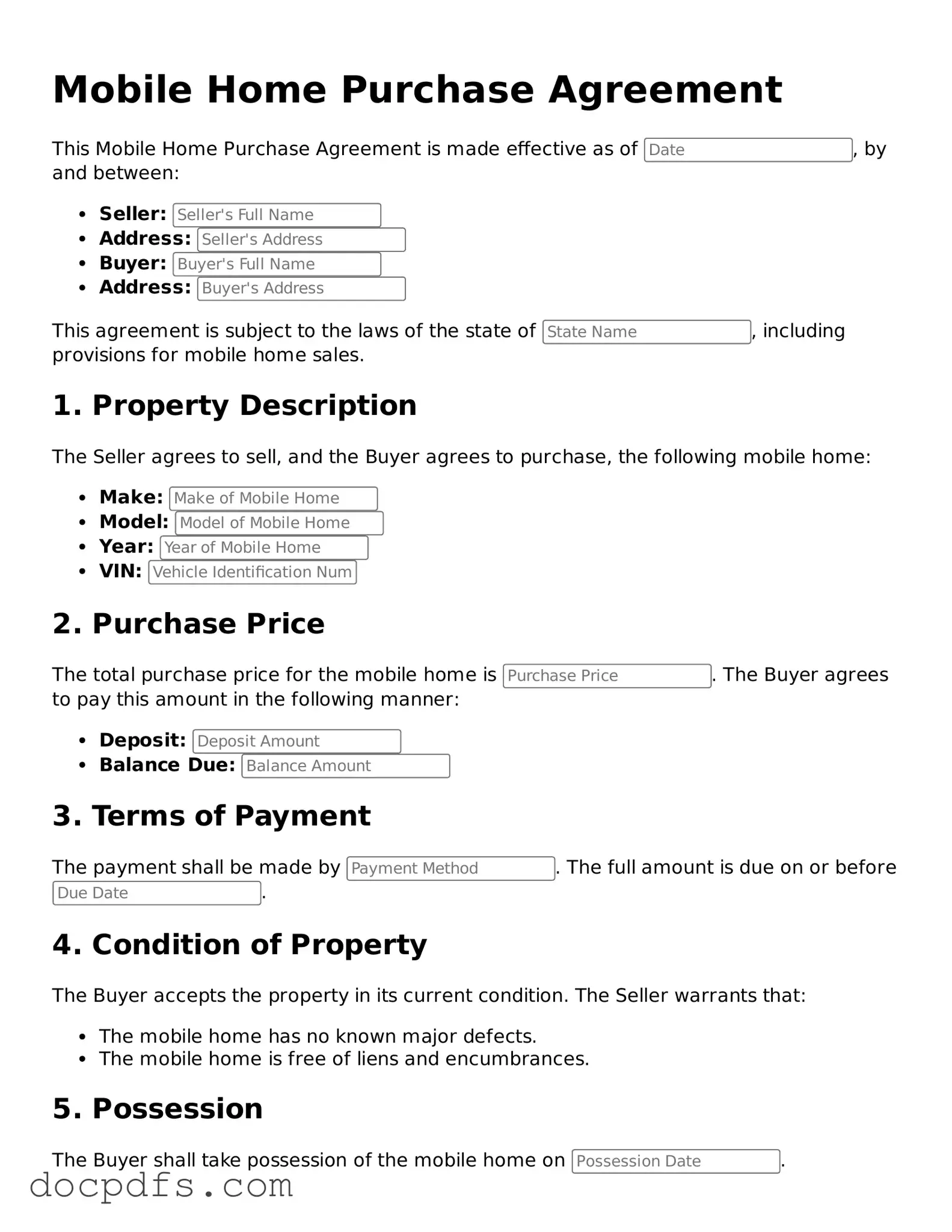What is a Mobile Home Purchase Agreement?
A Mobile Home Purchase Agreement is a legal document that outlines the terms and conditions under which a buyer agrees to purchase a mobile home from a seller. This agreement typically includes details such as the purchase price, payment terms, and any contingencies that must be met before the sale is finalized. It serves to protect both parties by clearly stating their rights and obligations throughout the transaction.
The Mobile Home Purchase Agreement generally includes the following key information:
-
Buyer and Seller Information:
Names and contact details of both parties.
-
Property Details:
Description of the mobile home, including make, model, year, and identification numbers.
-
Purchase Price:
The total amount agreed upon for the sale.
-
Payment Terms:
Details on how the payment will be made, including any deposits and financing arrangements.
-
Contingencies:
Conditions that must be satisfied for the sale to proceed, such as inspections or financing approvals.
-
Closing Date:
The date when the ownership transfer will take place.
Is a Mobile Home Purchase Agreement legally binding?
Yes, once both parties sign the Mobile Home Purchase Agreement, it becomes a legally binding contract. This means that both the buyer and the seller are obligated to adhere to the terms outlined in the agreement. If either party fails to fulfill their obligations, the other party may have legal grounds to seek remedies, which could include financial compensation or enforcing the terms of the agreement in court.
Can I modify the agreement after it has been signed?
Modifying a Mobile Home Purchase Agreement after it has been signed is possible, but it requires mutual consent from both parties. Any changes should be documented in writing and signed by both the buyer and the seller to ensure clarity and legality. Verbal agreements or informal changes are not advisable, as they may lead to misunderstandings or disputes later on.
What happens if the buyer backs out of the agreement?
If a buyer decides to back out of the Mobile Home Purchase Agreement without a valid reason or without meeting any contingencies specified in the contract, they may forfeit any deposits made and could potentially face legal action from the seller. It’s crucial for buyers to fully understand their commitment before signing the agreement to avoid any unwanted consequences.
Do I need a lawyer to create or review this agreement?
While it is not a legal requirement to have a lawyer when creating or reviewing a Mobile Home Purchase Agreement, it is often a good idea, especially for first-time buyers or sellers. A lawyer can help ensure that the agreement complies with local laws and that your interests are adequately protected. If you have any concerns or questions about the agreement, consulting a legal professional can provide peace of mind.

